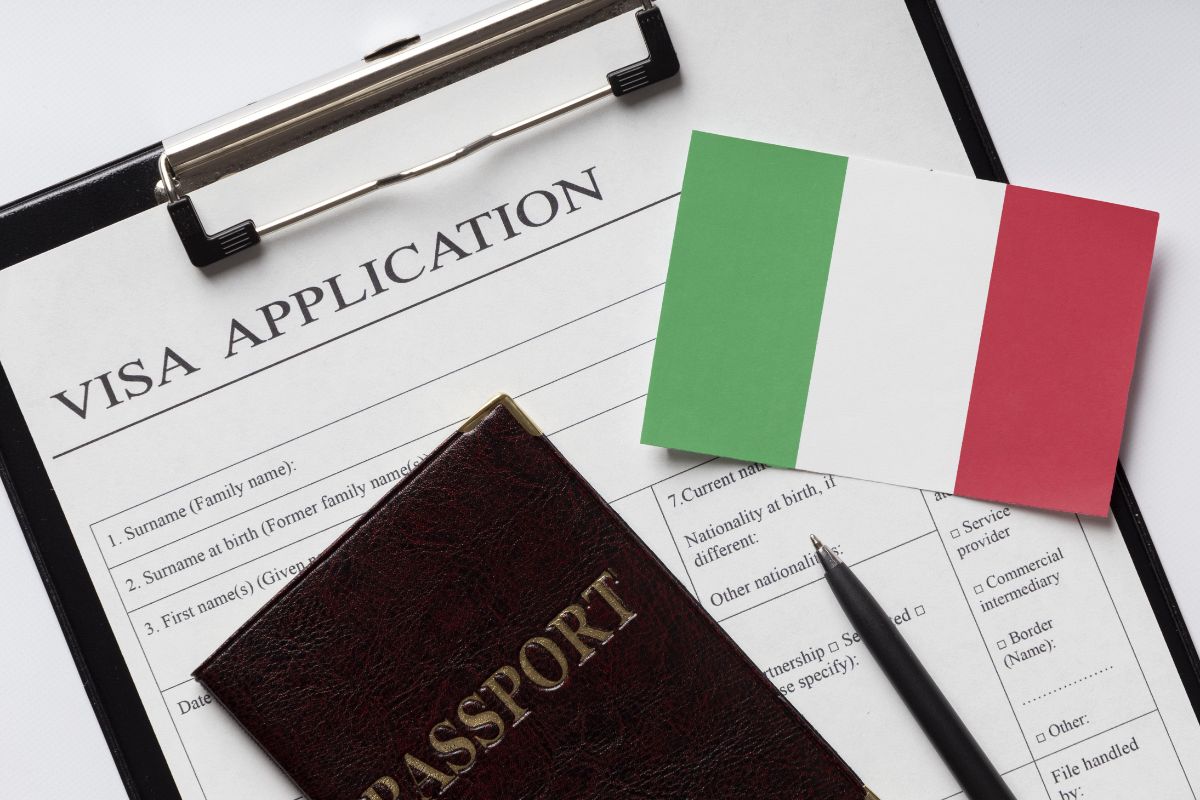Italy is making headlines with its ambitious plan to issue 497,550 new work permits to non-EU nationals between 2026 and 2028. The new work visa quota was approved by Italy’s cabinet as part of a broader strategy to balance economic demand with stricter immigration controls.
Italy’s Work Visa Rollout: What to Expect
Italy’s new work visa quota plan will be implemented gradually over three years:
- 2026: 164,850 work permits will be issued in the first phase.
- 2027–2028: The remaining visas will be distributed to reach a total of 497,550 permits by the end of 2028.
This is the second major expansion of Italy’s legal migration policy under Prime Minister Giorgia Meloni, following:
- The issuance of over 450,000 work permits between 2023 and 2025 to address labour shortages in essential sectors.
Why Italy Needs Foreign Workers Now More Than Ever
Italy, the third-largest economy in the eurozone, is facing a demographic crisis. Key challenges include:
- Population Shrinkage: In 2024 alone, there were 281,000 more deaths than births.
- Net Decline: The total population dropped by 37,000 people, continuing a decade-long downward trend.
- Ageing Workforce: A growing elderly population is increasing pressure on social services and reducing the active labour pool.
- Low Birthrate: Fewer young people are entering the workforce, creating long-term gaps across industries.
- Labour Shortages: Key sectors such as agriculture, construction, and healthcare are struggling to fill positions due to the shrinking workforce.
To maintain current population levels and sustain economic productivity, research from the Osservatorio Conti Pubblici suggests that Italy will need to accept at least 10 million immigrants by 2050.
Sectors That Will Benefit from the New Work Visa Quotas
The government says the new quotas are based on actual demand from businesses and historical visa application data. Italy is focusing on industries experiencing critical labour shortages, including:
Agriculture
Workers are urgently needed in the farming and food production sectors. Lobby group Coldiretti welcomed the new plan, calling it essential for food security and the survival of rural communities.
Construction
With ongoing infrastructure projects and housing demands, construction companies are actively seeking skilled and unskilled workers.
Tourism & Hospitality
As tourism continues to rebound, hotels, restaurants, and travel companies are struggling to fill vacancies, especially during peak seasons.
Manufacturing
Italy’s industrial heartland is experiencing a shortage of machine operators, technicians, and factory workers.
Healthcare
Nurses, caregivers, and support staff are in high demand as the country’s healthcare system faces staffing shortages.
Opportunities for Foreign Workers
This work visa expansion offers a huge opportunity for non-EU workers looking to legally migrate to Italy for employment. Key benefits include:
1. Streamlined Application Processes
Recent reforms have digitised and simplified visa procedures, making it easier and faster for non-EU nationals to apply and settle in Italy.
2. Increased Job Opportunities
The new quotas mean more job openings in high-demand sectors, offering foreign workers a range of employment options.
3. Legal Protections
By expanding legal migration channels, the government ensures that foreign workers enjoy the same rights and protections as Italian citizens, including access to healthcare and social services.
4. Pathway to Long-Term Residence
The removal of quotas for converting seasonal and long-term permits from other EU states gives workers more flexibility and security in building a life in Italy.
5. Integration Support
Digital agreements and streamlined paperwork help workers and employers comply with regulations, reducing bureaucratic hurdles and fostering smoother integration.
In-Demand Jobs in Italy for Foreign Workers
Foreign nationals planning to work in Italy should consider preparing for jobs in the following areas:
| Sector | In-Demand Jobs |
|---|---|
| Agriculture | Seasonal pickers, field workers |
| Construction | Labourers, masons, electricians |
| Hospitality & Tourism | Chefs, waiters, cleaners, and hotel staff |
| Healthcare | Nurses, elderly care aides, and support workers |
| Manufacturing | Machine operators, mechanics, technicians |
What This Means for Legal Migration
While Italy continues to tighten its stance on irregular migration, this plan shows a commitment to expanding legal pathways. Interior Minister Matteo Piantedosi emphasised that this policy reflects a realistic and necessary approach to meet labour demands while maintaining national security and social cohesion.
Final Thoughts
Italy’s decision to issue nearly 500,000 new work visas is a clear sign that the country is ready to welcome foreign talent through the front door. For non-EU nationals seeking job opportunities abroad, this is a chance to build a future in one of Europe’s most iconic and economically vital nations.
Follow and connect with us on Facebook, Twitter, LinkedIn, Instagram and Google News for the latest travel news and updates!
